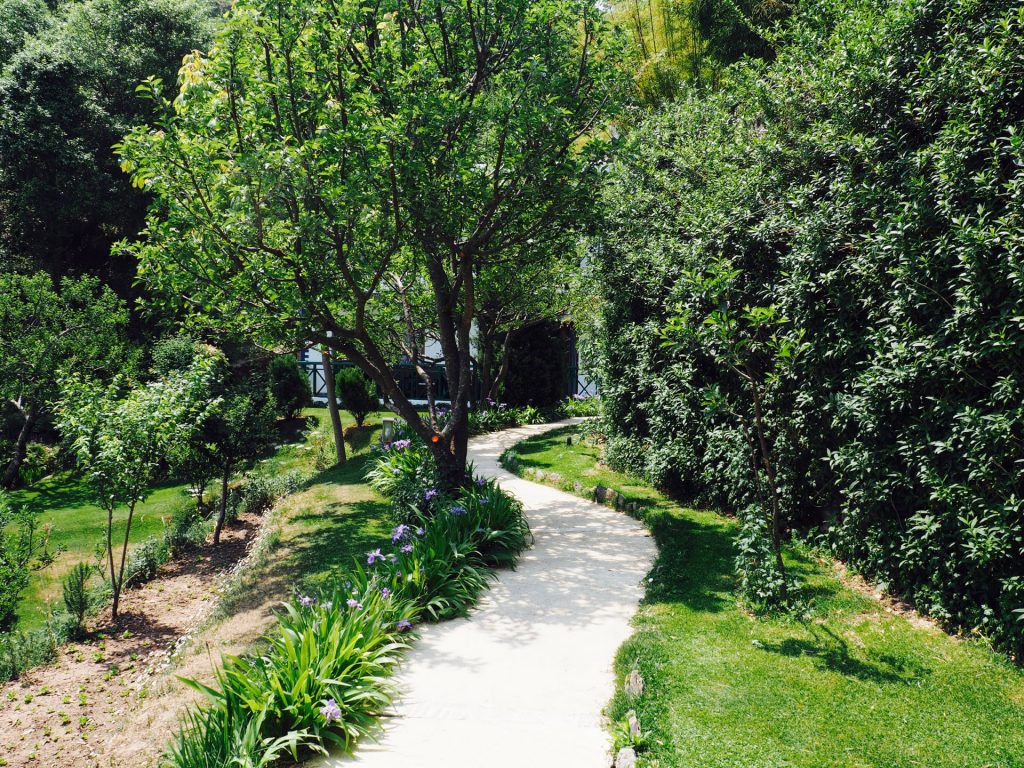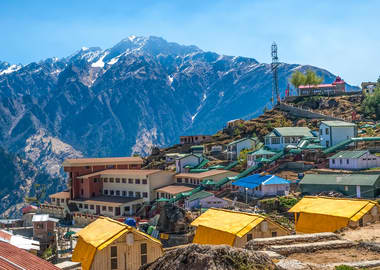Ruskin Bond, besides his writing, is known for his fondness for his hometown Mussoorie.
Most of his stories are also based in the hills. His Roads to Mussoorie is his loving tribute to the beautiful hill town. He writes about the lovely and languid pace of the city and his life, “I have never been a fast walker, or a conqueror of mountain peaks, but I can plod along for miles. And that’s what I’ve been doing all my life—plodding along, singing my song, telling my tales in my own unhurried way. I have lived life at my own gentle pace, and if as a result I have failed to get to the top of the mountain (or of anything else), it doesn’t matter, the long walk has brought its own sweet rewards; buttercups and butterflies along the way.”
Surprisingly most of the conversations with my friends recently have hovered on common theme: the yearning to get out of the capital and go to a smaller city. This is not a small weekend visit they have been contemplating but a bigger decision of a permanent move. I have found myself agreeing with them. As we move from the excitement of the twenties towards serious adulting of the thirties, these conversations become more frequent. Every year they soar in the scorching heat of Delhi summers and rain logged traffic jams that follow in the monsoons. It is in these endless jams that the urge is strongest to call a fellow soul and ask, ‘is this worth it?’
Read more: The Human Library to open in Delhi, time to borrow human instead
The professional class of Delhi is teeming with young, educated, migrant Indians from smaller towns of India. They came to Delhi either for higher education and ended up staying back or moved to another big metropolis depending on the skills and employment scene; or they came directly for employment related purpose having completed their education in some premier institutes with sprawling campuses. Every small holiday, at the first opportunity, the tickets are booked for going home.
The complaints are familiar. The capital is like a sprawling urban jungle. There is no warmth or intimacy. Plans are endlessly made and cancelled. It is impossible to save. Every day almost becomes a battle; it is one against the city. The metaphors change when yearning for smaller town is expressed. The charm of small town lies in its security, in its familiarity, the lesser distances, the easily achievable plans, the relative cheapness, and the comfort of knowing that the city is one’s own.
Read more: Meme trees: In Kolkata, trees don’t bear fruits anymore!
Sure there are advantages of living in a big city: the opportunities, the freedom, the wealth of experiences, the relative anonymity. People are less likely to be judgemental or even care about the other person. One is less likely to run into interfering neighbours and meet moral policing acquaintances when dining out. Big city gives one a chance to be independent and explore life, to make one’s own identity free from their parents, to reach the pinnacle of one’s career. Living alone in a big city is often one’s first chance of being an adult.
In fact these are some of the reasons why young people shifted to a big city in the first place, spending decades, often struggling but mostly carrying on for the sake of making one’s life here. Yet the frustrations of modern life catch up soon enough. First is the feeling of loneliness. As preferences shift from raucous city parties to more intimate tête-à-tête, the big city distances and stressful routines get in the way. It is ironical that in a big city teeming with millions where one is spending countless hours rubbing shoulders with strangers in public transport and spaces that one barely knows the neighbours.
Read more: INTACH, Google join hands to preserve capital’s heritage
Second is the lack of social networks and the continual hostility of the big city. There is lower reciprocity and people hardly do favours. Even mundane tasks often become an uphill battle. There are fewer fall back options. More competition, and one feels one is in a rat race merely to be a cog in the giant indifferent machine. Long commutes, and longer work hours often leave little time for leisure, rest or social life. The alienation of the modern times is particularly strong here. This is often coupled with poorer physical and mental health. Water, air and noise pollution further exacerbate this. Higher incidences of crime and traffic accidents often lead to significant stress.
Also read: Did you know that your router could secretly leak sensitive data?
However despite all the thought and conversation that goes in planning this proposed move, it remains for the most part a fantasy. Small towns are unable to meet the opportunities for aspirational young men and women. Big cities do offer significant rewards and a chance to make something of one’s life to hard working and ambitious people. Moreover, while big cities like Delhi are no liberal haven, ironically its very indifference and apathy makes it a little less judgemental, perhaps a slightly better place to love and live in one’s own way. One must be wary of romanticising the small town life. Small towns, sadly, often come with small minds, and narrower definitions of morality and respectability that can mean less tolerance. Perhaps a yearning for small town is nothing but unblemished nostalgia, a yearning for lost childhood, when life was free, happy.
Disclaimer: The opinions expressed in this article are the personal opinions of the author. The facts and opinions appearing in the article do not reflect the views of NEWSD and NEWSD does not assume any responsibility or liability for the same.



















